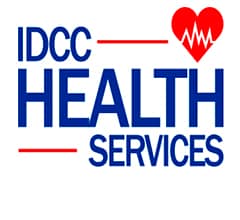Confronting the fear of the unknown, particularly with a condition as serious as stomach cancer, can be overwhelming. Understanding how doctors diagnose this disease is essential for peace of mind. This guide will take you through the intricate process of stomach cancer diagnosis, highlighting the methods and tools medical professionals use to detect and understand this complex illness.
Elevate your digestive health with our leading-edge gastroenterology treatment in Brooklyn. Experience expert care and a path to wellness tailored to your unique needs

Recognizing Stomach Cancer Symptoms
Knowing the early signs of stomach cancer is crucial. Symptoms like continuous abdominal discomfort, unexplained weight loss, difficulty swallowing, and altered bowel habits can signal potential issues. Early detection plays a vital role in effectively combating stomach cancer, so it’s important to listen to your body and consult a doctor if you notice persistent changes.
First Steps: Physical Exam and Medical History Review
The diagnostic journey begins with a physical examination and a detailed review of your medical and family history, focusing on risk factors such as age, lifestyle, and genetic predisposition. This preliminary assessment helps doctors form an initial understanding of your condition.
Blood Tests: Uncovering Hidden Clues
Blood tests serve as critical indicators. A Complete Blood Count (CBC) can identify anemia, often a sign of internal bleeding, while other tests can detect tumor markers that point to stomach cancer. While these tests alone can’t confirm cancer, they provide essential guidance for further investigation.
Advanced Imaging: Exploring Inside the Body
Techniques like CT scans and MRIs offer comprehensive internal views, identifying any unusual growths or anomalies. The cornerstone of stomach cancer diagnosis, however, is endoscopy. This procedure allows for direct observation of the stomach lining and enables doctors to perform biopsies, which are crucial for accurate diagnosis.
Biopsy: The Definitive Diagnostic Tool
Biopsies are paramount in confirming stomach cancer. By examining tissue samples under a microscope, doctors can detect the presence of cancerous cells, offering conclusive evidence about the nature of the illness.
Staging the Cancer: Understanding Its Spread
Determining the cancer’s stage is vital for developing an effective treatment strategy. Through additional imaging and sometimes surgical procedures, doctors assess how far the cancer has spread and plan the most appropriate course of action.
Collaborative Care: A Team-Based Approach
Stomach cancer diagnosis and treatment often involve a multidisciplinary team of specialists. Gastroenterologists, oncologists, and surgeons collaborate, pooling their expertise to devise a comprehensive and tailored treatment plan.
Conclusion:
While the journey through stomach cancer diagnosis can seem daunting, it is navigated with advanced technologies and the expertise of dedicated healthcare professionals. Early detection remains a key factor in successful treatment. Stay attuned to your body’s signals, maintain regular health check-ups, and seek medical advice for persistent symptoms. With these diagnostic tools at your disposal, navigating the complexities of stomach cancer becomes manageable, leading to effective treatment and a hopeful path forward.
